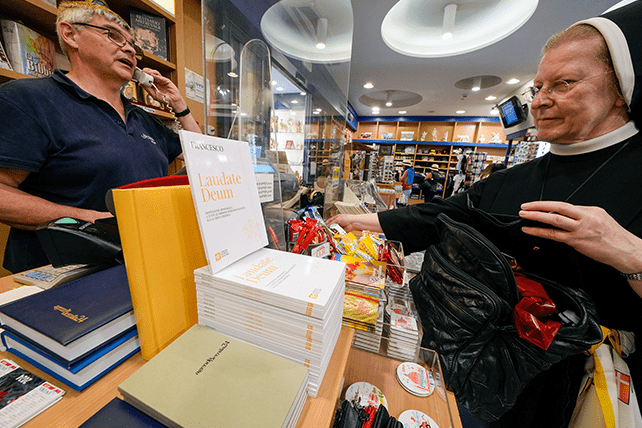Multilateral agreements, such as the Ottawa Process against the use of anti-personnel mines and the 2015 Paris Agreement on climate change, are examples of how nations are “capable of creating effective dynamics that the United Nations cannot,” he said.
Tackling the tension between global and local concerns is at the heart of finding real solutions to such a complex and diversified issue as climate change, the pope said, and requires “a different framework for effective cooperation.”
The pope called for “a change in direction” from world leaders who will meet Nov. 30-Dec. 12 for COP28 in the United Arab Emirates, an oil exporting country, as they address the question of climate change and pollution.
“If we are confident in the capacity of human beings to transcend their petty interests and to think in bigger terms, we can keep hoping that COP28 will allow for a decisive acceleration of energy transition, with effective commitments subject to ongoing monitoring,” he wrote.
In the document, the pope also called for a reflection on technology and scientific progress. Contrary to those who place blind faith in the power of technology, Francis wrote, “we say that the world surrounding us is not an object of exploitation, it’s not for unbridled use or unlimited ambition.”
Human beings are a part of nature, Francis continued, writing that ”human life, intelligence and freedom are elements of the nature that enriches our planet, part of its internal workings and its equilibrium.”
The pope concluded the encyclical with an explanation of why he chose the title “Laudate Deum.”
“For when human beings claim to take God’s place, they become their own worst enemies,” he wrote.
This article originally appeared here.

